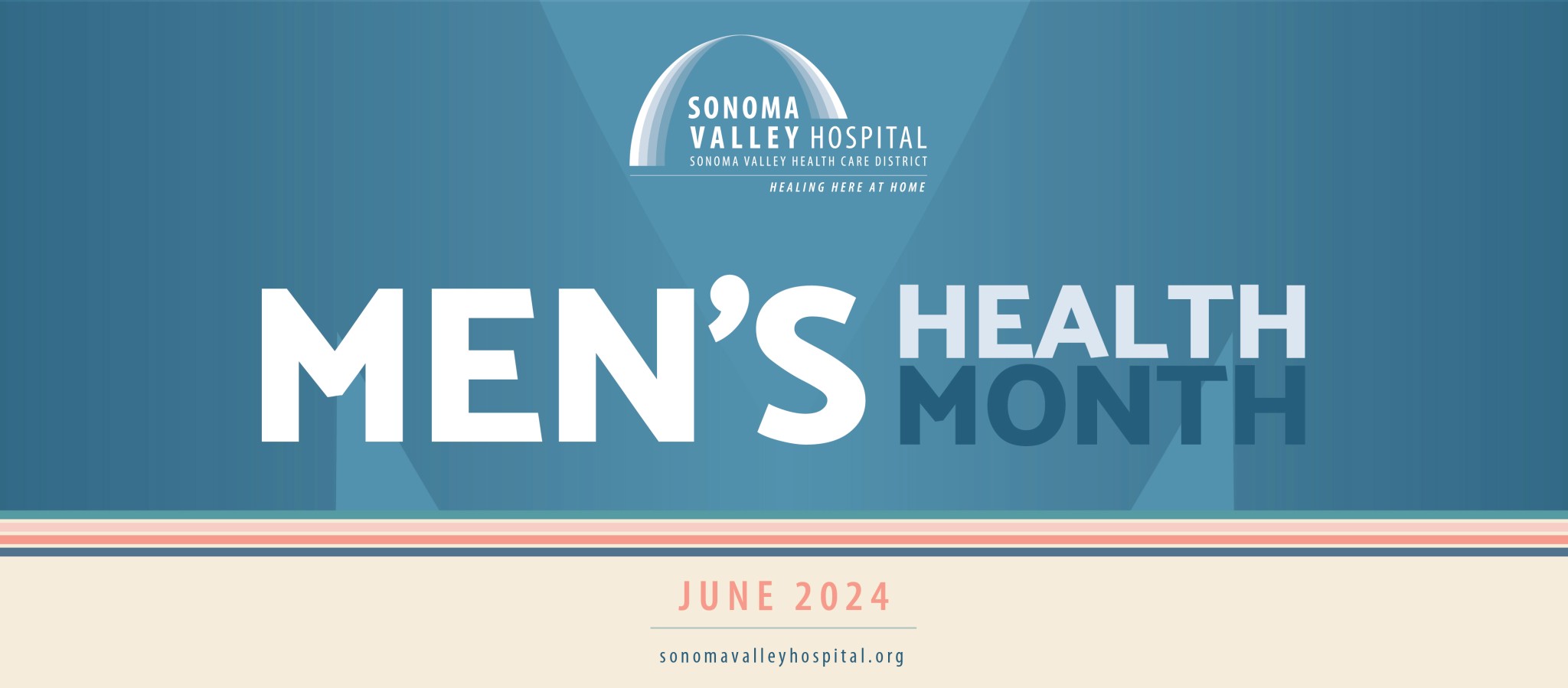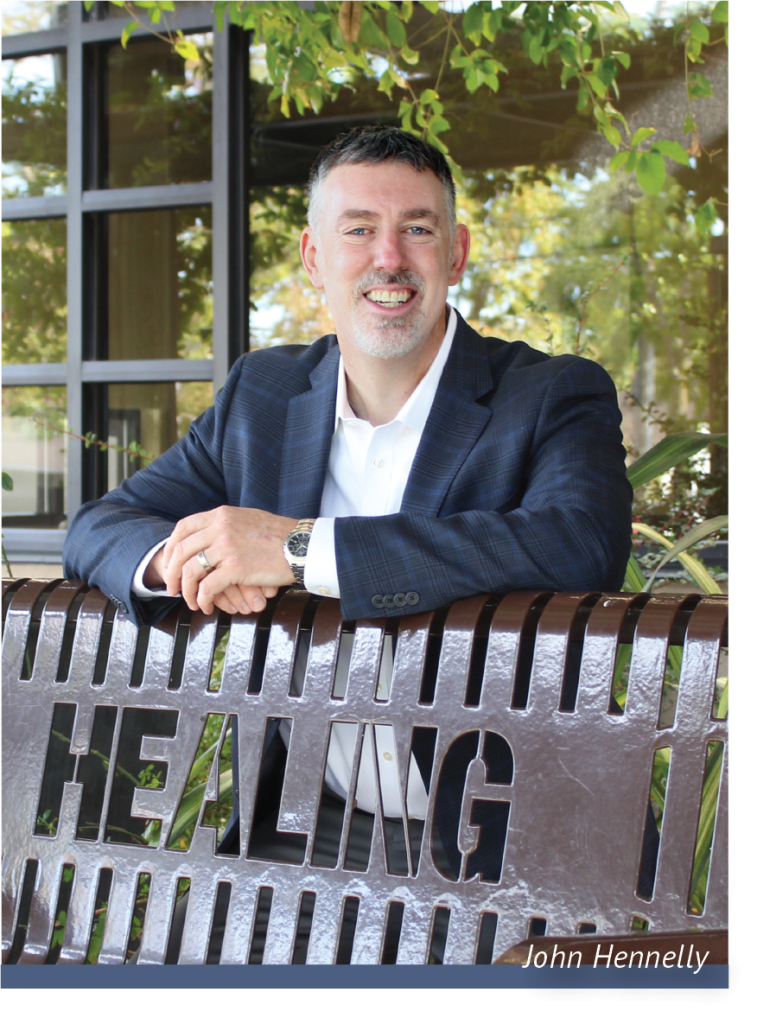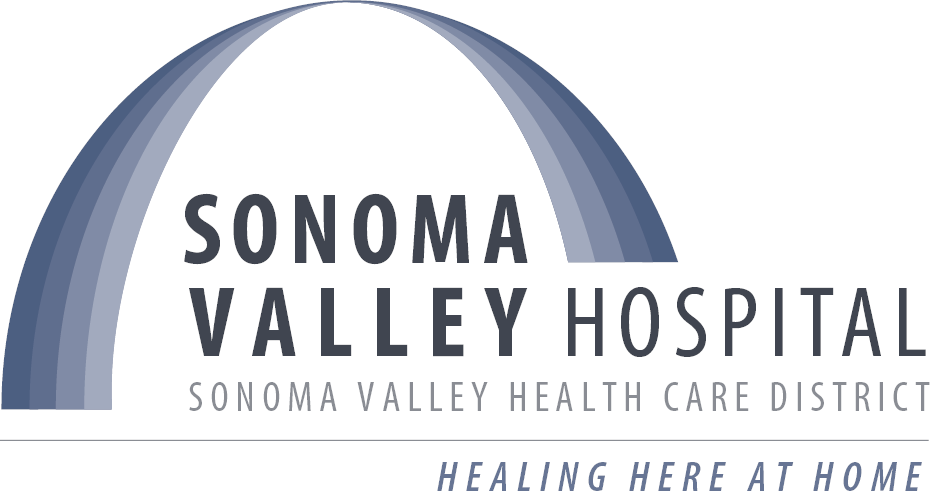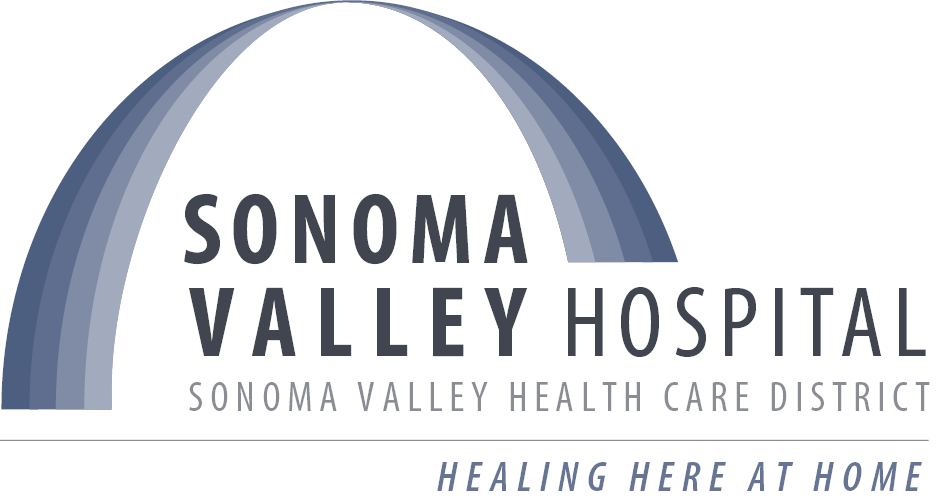
Men’s Health Month

As we celebrate June, Men’s Health Month, I want to take this opportunity to emphasize the importance of men’s health and the critical issues that affect the men in our lives. This month is designed to bring awareness to men’s health and encourage men to prioritize their well-being through prevention, early detection, and healthy lifestyle choices.
Our community hospital is dedicated to providing comprehensive services to everyone in our community. This month, we especially encourage the men in our community to focus on their health, and we urge their families to support them in this endeavor.
At Sonoma Valley Hospital, we are proud to have Dr. Peter Carroll, a world-class urologist, on our team. Dr. Carroll is a Professor of Urology and holds the prestigious Ken and Donna Derr-Chevron and Taube Family Distinguished Professorships at UCSF. He is also a member of the UCSF Helen Diller Family Comprehensive Cancer Center and is renowned for his expertise in managing urologic cancers.
Men’s Health Month highlights the importance of early detection, prevention, and treatment of prostate-related issues. This month-long observance aims to increase awareness and promote regular screenings, allowing for the early detection of potential problems. I encourage everyone to take the time to educate themselves about men’s health issues, including prostate health, prostate cancer treatment, mental health, heart health, and overall well-being.
Remember, small actions taken during Men’s Health Month can have a significant impact on your overall health and well-being. Now is the perfect time to encourage the men in your life to take care of themselves. Men’s health is not just a ‘man’s issue’; it’s a family issue that affects everyone around them. At Sonoma Valley Hospital, we are committed to supporting the health of our community. Together, we can make a difference in the lives of the men we care about.
Sincerely,
John Hennelly
CEO, Sonoma Valley Hospital
Meet the Expert: A Q&A with Dr. Peter Carroll
 As we celebrate Men’s Health Month, we are excited to introduce Dr. Peter Carroll to the Sonoma Valley Hospital community. Dr. Carroll is a Professor of Urology and holds the Ken and Donna Derr-Chevron and Taube Family Distinguished Professorships at UCSF. He is a member of the UCSF Helen Diller Family Comprehensive Cancer Center and an expert in managing urologic cancers
As we celebrate Men’s Health Month, we are excited to introduce Dr. Peter Carroll to the Sonoma Valley Hospital community. Dr. Carroll is a Professor of Urology and holds the Ken and Donna Derr-Chevron and Taube Family Distinguished Professorships at UCSF. He is a member of the UCSF Helen Diller Family Comprehensive Cancer Center and an expert in managing urologic cancers
Dr. Peter Carroll’s research interests include innovative urinary tract reconstruction, refining robotic prostatectomy, developing cancer biomarkers, and promoting active surveillance of prostate cancer. With over 600 published articles and numerous honors, Dr. Carroll has significantly advanced cancer detection and treatment. He holds an MPH from UC Berkeley and completed a fellowship in urologic oncology at Memorial Sloan Kettering Cancer Center.
Q: What brought you to Sonoma?
A: I happened upon Sonoma quite by chance. I was a busy clinician working long hours in the city. My wife visited Sonoma and fell in love with the area. Initially, I didn’t think we’d move here, but we found the perfect place, made a bid, and very quickly everything changed. The area is great for running and cycling, and it’s a lovely city. I’ve been taking care of many patients in the Sonoma/Napa corridor since we moved here. Sonoma Valley Hospital (SVH) is making significant strides, and UCSF needs regional partners to deliver care in the community while also ensuring rapid access to UCSF from SVH.
Q: What key screenings should men consider as they age, and when should they start these screenings?
A: Screening should be tailored to the individual, considering age, signs, and symptoms. The US Preventative Task Force provides good guidelines. For prostate cancer, informed consent is crucial. We’re entering a new era in detection with DNA screening, but not all tumors have detectable markers. Prostate cancer is a major cause of death and disability, but over screening can be an issue. A PSA* test at age 45 is a strong predictor. Men at higher risk, such as black men and those with a family history, should start at age 40. Over detection is a concern, so we advocate for careful screening and monitoring, using tools like MRI to determine the need for biopsy.
*Note: The PSA test is a blood test used primarily to screen for prostate cancer. The test measures the amount of prostate-specific antigen (PSA) in your blood.
Q: What recent advancements in urology do you find particularly promising?
A: Recent advancements that revolutionize the field include prostate-specific imaging (PET scans) and the development of molecular medicine. AI is making a significant impact by democratizing cancer care and improving imaging accuracy. While AI assists in analysis, physicians are still essential for making judgment calls. It’s crucial to consider the cancer itself, the patient’s age and health, and patient preferences. Education and remote visits have become invaluable, especially for the aging population.
Q: How can lifestyle choices impact urological health?
A: Lifestyle choices significantly impact urological health. A good diet and regular exercise can improve symptoms and overall health. For some men, lifestyle changes alone can alleviate symptoms and improve health outcomes. UCSF’s urology website offers resources on healthy living, including exercise recommendations and weekly planning worksheets.
Q: Are there any common misconceptions about urological health that you would like to address?
A: A common misconception is that symptoms are to be expected and tolerated. It’s important to recognize and address symptoms early rather than accepting them as inevitable.
Q: What symptoms or signs should prompt a man to see a urologist?
A: Men should be aware of changes in urinary stream, frequency, and sexual function. Moderate to severe symptoms, such as getting up frequently at night, warrant a visit to a doctor. Many urinary and sexual symptoms are very treatable.
Q: How does family history influence the risk of urological issues, and what preventive measures can be taken?
A: Family history can significantly influence the risk of urological issues. It’s crucial to know your family medical history, as it may indicate an increased risk for various diseases. Patients should be aware of any hereditary mutations and seek appropriate screenings and preventive measures.
Q: What advice would you give to younger men about maintaining urological health throughout their lives?
A: Start young with a healthy lifestyle: don’t smoke, exercise regularly, eat well, enjoy life, and avoid risky behaviors.
For more resources on healthy living, visit the UCSF Urology website: UCSF Urology Lifestyle Resources.
Ways You Can Support Men’s Health Month
EDUCATE YOURSELF
Take time to learn about men’s health issues from reputable sources such as articles and research studies.
Staying informed can help you make better health decisions.
PLAY AN ACTIVE ROLE IN YOUR HEALTH
Prevention is key. Adopting healthy habits such as eating more fruits and vegetables, engaging in regular physical activity,
and quitting tobacco can significantly improve your health.
BE MINDFUL OF MENTAL HEALTH
Men’s Health Month also emphasizes mental and emotional well-being. Prioritize self-care and stress management
techniques such as mindfulness, meditation, yoga, or engaging in hobbies that bring joy and relaxation.



